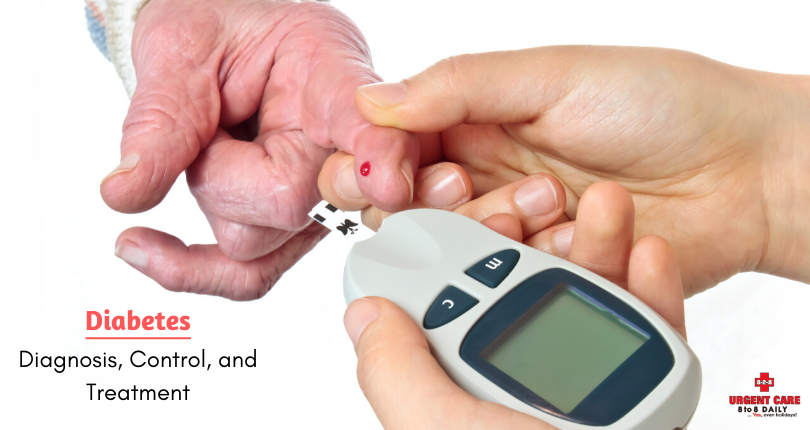


Diabetes occurs when your blood glucose level is too high. The disease can be prevented by losing extra weight and increasing physical activity. November is National Diabetes Month, and although the month is coming to an end, it’s never too late to understand diabetes management. The American Diabetes Association reveals that 1.5 million people are diagnosed with diabetes every year. We should make every possible effort to be aware about the diagnosis, control, and treatment of diabetes.
It occurs when your body fails to produce insulin. People with type 1 diabetes must take artificial insulin every day.
It occurs when your body does not use insulin properly. Type 2 diabetes can be controlled with lifestyle changes, medications or insulin.
Prediabetes is when your blood glucose level is higher than normal but not too high to contribute to type 2 diabetes. However, people with prediabetes may have the risk of developing type 2 diabetes.
Diabetes is diagnosed with a blood test, which measures your blood glucose level.
One possible sign that shows you may have prediabetes is darkened skin on certain parts of your body such as knees, neck, armpits, knuckles, and elbows. If your prediabetes contributes to type 2 diabetes, you may experience symptoms such as:
Visit your doctor as soon as you suspect that you may have diabetes. They will perform any one of the following tests to diagnose your condition:
Your blood sample will be taken after an overnight fast. This test measures your blood sugar levels. A level of 126 mg/dl or higher indicates that you have diabetes.
A blood test measures your average blood sugar levels for the last 2 to 3 months. An A1C level of 6.5% or higher indicates that you have prediabetes.
For this test, you will be asked to drink a sugary liquid and then your blood glucose levels are checked every 30 to 60 minutes for up to 3 hours. You may have diabetes if your blood glucose level is 200 mg/dl or higher at 2 hours.
Your doctor may also recommend the ZnT8Ab test for an accurate diagnosis.
Your doctor will prescribe medications and recommend a diet and exercise routine to treat your diabetes. Also, they will check your blood glucose levels frequently to determine whether your diabetes is under control. Your doctor may change medication or its dosages if you have fluctuations in your blood sugar levels.
If you have type 1 diabetes, your doctor may recommend injectable insulin that comes in 5 types, which include:
If you have type 2 diabetes, your doctor may prescribe drugs that:
Eating a balanced diet is important for diabetes patients. Doctors recommend 3 small meals and 3 to 4 snacks every day to maintain a proper balance between insulin and sugar in the blood. Your diet should include fats, proteins, and carbohydrates. If you are overweight, a low-carbohydrate, Mediterranean, or low-fat diet will help you lose weight. Your diet should not include foods that are high in trans fats.
Also Read: Fasting Before a Blood Test: Everything You Need to Know